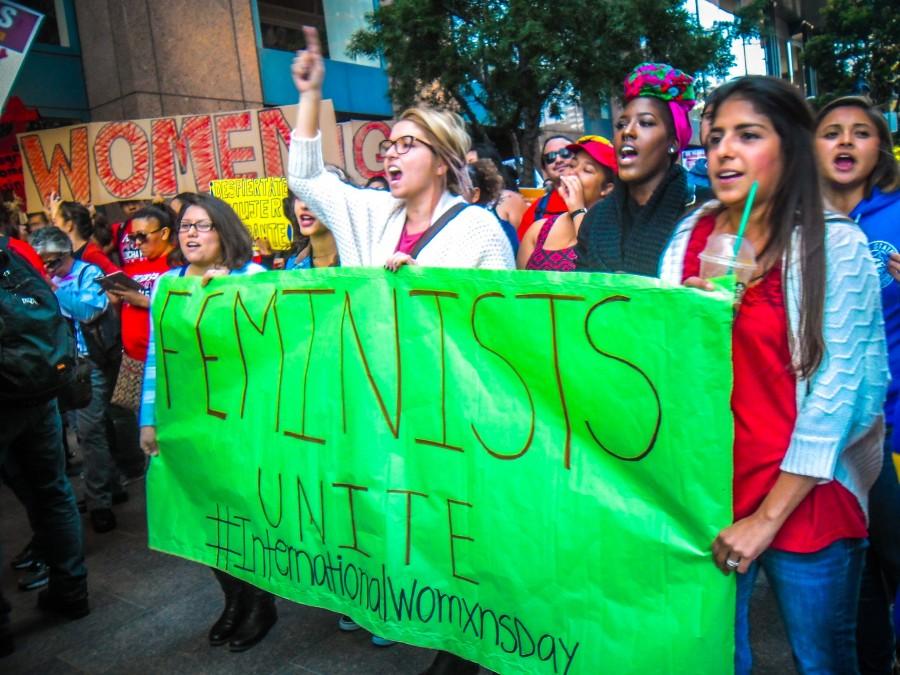No olvides a las mujeres indocumentadas
Don’t forget about the undocumented women
Members of CSUSM’s Feminists Unite group march on International Women’s Day.
March 30, 2016
On International Women’s Day, which occurred March 8 this year, men and women came together to participate in a Feminists Unite march to advocate for immigrant working women saying, “Ya basta” (“Enough is enough”), to the sexual harassment they face.
I accompanied Feminists Unite, a CSUSM student organization, in downtown San Diego. Many different organizations, unions, faith communities and students marched four blocks and ended in front of the Civic Center with speeches from women who have been victims of sexual assault, politicians who addressed their support and many other activists.
Julio Villa Chavez, a third-year student and supporter of the organization, said, “It’s time for us to realize we can’t deal with [sexual assault on women] anymore.”
Coming from an immigrant working family, I know the hardships women face when it comes to jobs, whether it’s unequal payment or exploitation. The march was centered on immigrant women janitors who are more exposed to these unfair circumstances because they work late night shifts and are assaulted either by their male co-workers or their supervisors.
“When we talk about sexual assault, [the conversation] tends to be focused on white women or women who have a lot of money. It leaves out women of color and undocumented women,” said President of Feminists Unite Karen GuzmXn.
Some victims of sexual assault are afraid to speak out and ask for help, and these undocumented workers are typically afraid to call for help because they have a fear of deportation. The march encouraged women immigrants with the message that sexual assault is never acceptable, despite whether a person is documented or not.
“So many women aren’t able to ask for help because they’re scared of being deported or because their family just says it’s okay and to just get over it. It’s important to know that it’s not okay and that you can get help,” said third-year student Claire Lopez.
What was so mind-blowing about the march to me was the diversity of people who participated. I expected mostly Latinxs to show up to support each other, but I was mistaken. I saw a diversity of people from different races and genders who decided to stand together with immigrant working women. As a Latina, that made me grateful to see that a lot of people want a change.
“I personally don’t think I made a difference, but together, we all did,” said secondyear sophomore Anthony Tran.
Since it was my first time marching, I didn’t know what to expect. The multitude of people astonished me and having the support of so many different people was outstanding. These were people who felt the need to say that sexual assault toward women is wrong, regardless of skin color, nationality, citizenship, race, religion, etc.
“When you have a few people out there talking about an issue, it’s easy to ignore them. But when you have a large group of mixed people—women, men, every nationality, every different race out there—saying this is an issue, we need to pay attention to this…it’s really hard to ignore that,” said fourth-year student Charity Paquette.
Overall, this march helped me acknowledge that if there’s an issue in my community, as a community member, it is beneficial for me to stand up and make a change.
“Let your voice be heard not only about this cause, but many other causes in our community,” said Villa Chavez.







